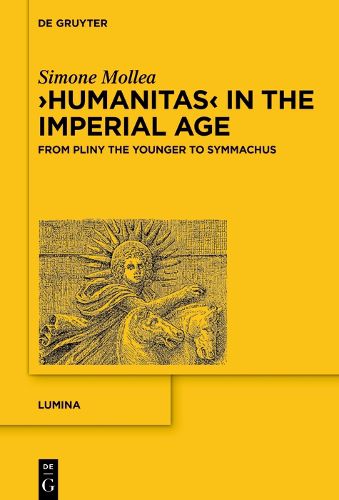Readings Newsletter
Become a Readings Member to make your shopping experience even easier.
Sign in or sign up for free!
You’re not far away from qualifying for FREE standard shipping within Australia
You’ve qualified for FREE standard shipping within Australia
The cart is loading…






This book investigates one of the most polysemic Latin words, humanitas. While the first chapter briefly retraces the history of humanitas from its origins, the book as a whole focuses on its uses in the pagan literary texts from the Trajanic (late first century CE) to the Theodosian age (late fourth century CE). The aim of this study is to explore the extent to which the different meanings usually attributed to humanitas by dictionaries (roughly 'human nature', 'education and culture', 'philanthropy') are much more nuanced and in continuous relation with one another, and how the use of humanitas by some authors often performs clear rhetorical and/or ideological strategies.
This book is therefore not only a lexicographical study, but pays careful attention to the wider historical and cultural contexts in which humanitas was employed. More specifically, the use of humanitas reveals the ways in which Roman authors considered themes that were at the core of their conception of culture and civilisation, such as the relationship between being learned and behaving morally, the ideas of moral nobility and clemency, the notion that a value concept can distinguish one category of men from another, or even one historical period from another.
$9.00 standard shipping within Australia
FREE standard shipping within Australia for orders over $100.00
Express & International shipping calculated at checkout
This book investigates one of the most polysemic Latin words, humanitas. While the first chapter briefly retraces the history of humanitas from its origins, the book as a whole focuses on its uses in the pagan literary texts from the Trajanic (late first century CE) to the Theodosian age (late fourth century CE). The aim of this study is to explore the extent to which the different meanings usually attributed to humanitas by dictionaries (roughly 'human nature', 'education and culture', 'philanthropy') are much more nuanced and in continuous relation with one another, and how the use of humanitas by some authors often performs clear rhetorical and/or ideological strategies.
This book is therefore not only a lexicographical study, but pays careful attention to the wider historical and cultural contexts in which humanitas was employed. More specifically, the use of humanitas reveals the ways in which Roman authors considered themes that were at the core of their conception of culture and civilisation, such as the relationship between being learned and behaving morally, the ideas of moral nobility and clemency, the notion that a value concept can distinguish one category of men from another, or even one historical period from another.